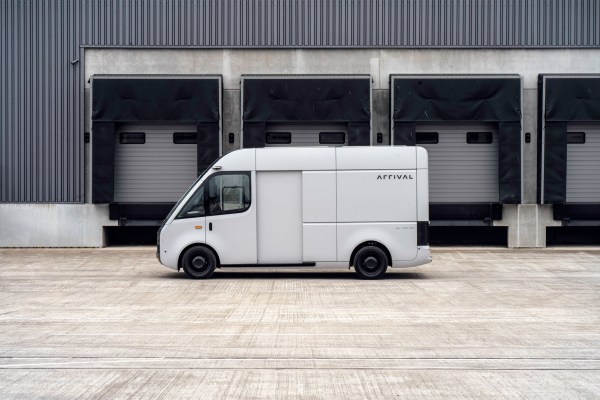Troubled electric vehicle startup Arrival, which is restructuring its business to develop commercial vans for the U.S. instead of Europe, said Tuesday it doesn’t expect to earn revenue until after 2023.
The British company, which has struggled to raise funds to produce EVs using its modular microfactory strategy, will halt operations at its Bicester, U.K., factory to focus on opening a facility in Charlotte, North Carolina. Arrival initially planned to build the van at scale in Europe through a now-shelved $150 million at-the-market offering.
Several factors make the U.S. a more attractive climate, said CFO John Wozniak, including a larger market, higher margins and new incentives of up to $40,000 for battery-electric commercial vans under the Inflation Reduction Act.
“Limited resources and the attractive opportunities in the U.S. market makes developing U.S. products the best use of capital,” Wozniak told analysts during the company’s third-quarter earnings call. “But this means revenue and margins will come later, not in 2023.”
The company reported a third-quarter loss of $310.3 million, compared with a $30.6 million loss for the same period a year ago.
Arrival has faced several struggles — including production delays, a class action lawsuit and wide-scale layoffs — since going public last year in a $660 million special purpose acquisition deal with CIIG Merger. The company finally produced its first electric van, a last-mile delivery vehicle called the L van, in October in Bicester.
Last week, the EV maker received a letter from Nasdaq warning it would be delisted if it does not manage to trade above $1 for 10 consecutive days over the next six months. The company’s share price reached $22 at its debut but has traded below $1 since late September.
Shares traded at 59 cents Tuesday morning following the company’s earnings report.
“This does not mean we’re writing off the U.K. and European markets,” said Mike Ableson, Arrival’s CEO of North America. “We are prioritizing the U.S. market with our current available funds, but we’ll keep an incredible team in place in the U.K. to redesign and optimize aspects about the L van for the new EU regulations.”
For the U.S., the company will build a larger van called the XL.
“We cannot make money on our current L van product given the cost of parts associated with being on low volume,” Wozniak said. “Each vehicle we produce reduces our cash balance.”
The company expects to begin producing the vans in Charlotte 12 to 18 months after raising capital, according to Ableson, a former General Motors executive who will head Arrival’s U.S.-based product engineering team. Many components carry over from the L van to the XL, including “especially some of the high-value systems like traction motors and battery modules,” which will shorten the development timeline, he said.
As part of the restructuring, Arrival is laying off about 700 workers — or 30% of its workforce — from 2,400 to “just under 1,700,” according to Ableson. Most of those positions are based in the U.K.
